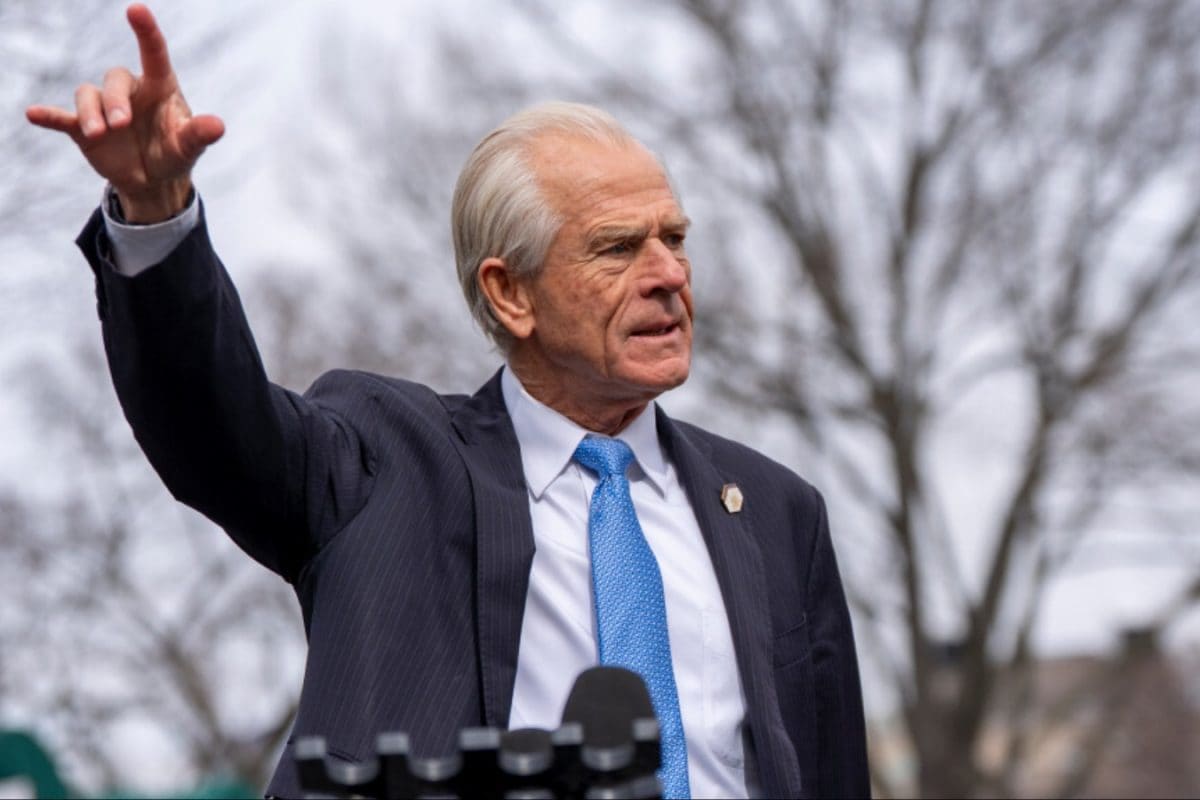

A top advisor to former U.S. President Donald Trump has ignited a fresh controversy by accusing India of prolonging the war in Ukraine through its continued imports of Russian oil. This accusation comes amidst escalating tensions between the U.S. and India, with the Trump administration imposing additional tariffs on Indian goods in retaliation for New Delhi's stance on Russian energy.
The Allegations
Peter Navarro, a former White House trade advisor, has been a vocal critic of India's economic ties with Russia since the start of the Ukraine conflict. He argues that by purchasing discounted Russian crude oil, India is essentially providing financial support to Moscow, thus enabling the continuation of the war. Navarro has described India's actions as "opportunistic" and "corrosive" to global efforts aimed at isolating Russia's economy. He has also accused India of acting as a "laundromat for the Kremlin" by refining cheap Russian crude and exporting the products at premium prices.
Echoing these sentiments, Treasury Secretary Scott Bessent accused India of "profiteering" from the war by reselling Russian oil. He stated that India's "arbitrage" was unacceptable. Stephen Miller, a deputy chief of staff at the White House, has also asserted that it is "not acceptable for India to continue financing this war by purchasing the oil from Russia".
India's Response
India has strongly defended its position, asserting that its oil imports from Russia are driven by economic necessity and are crucial for ensuring affordable energy for its 1.4 billion citizens. External Affairs Minister S. Jaishankar has called Washington's demands "unjustified and unreasonable," accusing the West of hypocrisy by pointing out that Europe continues to trade significantly with Russia.
Indian officials have also emphasized that their country is adhering to the price cap imposed by the U.S. and its allies on Russian oil. Furthermore, they argue that India's purchases are helping to stabilize global energy markets. India has also pointed out the double standards in singling it out for importing Russian oil while other countries, like China, are not penalized despite importing similar quantities.
Impact on India-U.S. Relations
The dispute over Russian oil imports has led to a significant strain in relations between India and the U.S.. The Trump administration has imposed a 50% tariff on most U.S. imports from India as a punitive measure. This move is expected to damage the Indian economy, potentially slashing exports by billions of dollars and putting thousands of jobs at risk.
Some experts believe that the U.S. tariffs could push India closer to China and Russia, potentially undermining Washington's strategic interests in the Indo-Pacific region. The situation has also complicated trade negotiations between the two countries, with little hope for immediate relief or delay in the U.S. tariffs.
India's Strategic Balancing Act
India's relationship with Russia has historical roots, dating back to the Indo-Soviet relations framed under the Treaty of Peace, Friendship and Cooperation in 1971. Even today, a significant portion of India's military arsenal is filled with Russian or Soviet-made weaponry. Despite attempts to diversify its military imports, India remains heavily reliant on Russian equipment.
India has maintained a neutral-to-pro-Russian stance on the war in Ukraine, often abstaining from UN resolutions condemning Moscow's actions. However, India has also expressed discomfort with Russia's disregard for international principles and has called for a cessation of violence and a peaceful resolution to the conflict.
Prime Minister Narendra Modi has engaged in diplomacy with both Ukrainian President Volodymyr Zelenskyy and Russian President Vladimir Putin, emphasizing that "this is not an era of war". India has also provided humanitarian assistance to Ukraine and has offered to contribute to peace efforts.
Global Implications
The controversy surrounding India's Russian oil imports highlights the complex geopolitical landscape shaped by the Ukraine war. While Western nations have sought to isolate Russia economically, countries like India have continued to engage with Moscow, driven by their own economic and strategic interests.
The situation raises questions about the effectiveness of sanctions and the extent to which countries are willing to prioritize geopolitical goals over economic considerations. It also underscores the challenges of balancing competing interests in a multipolar world.